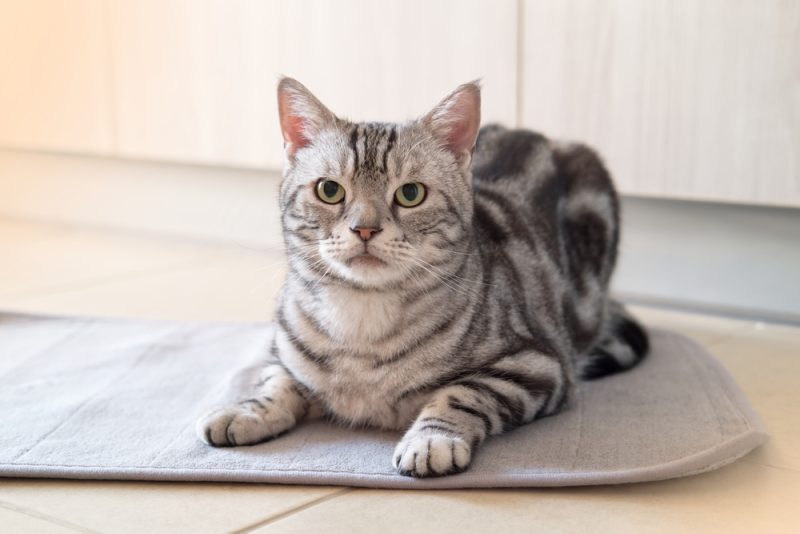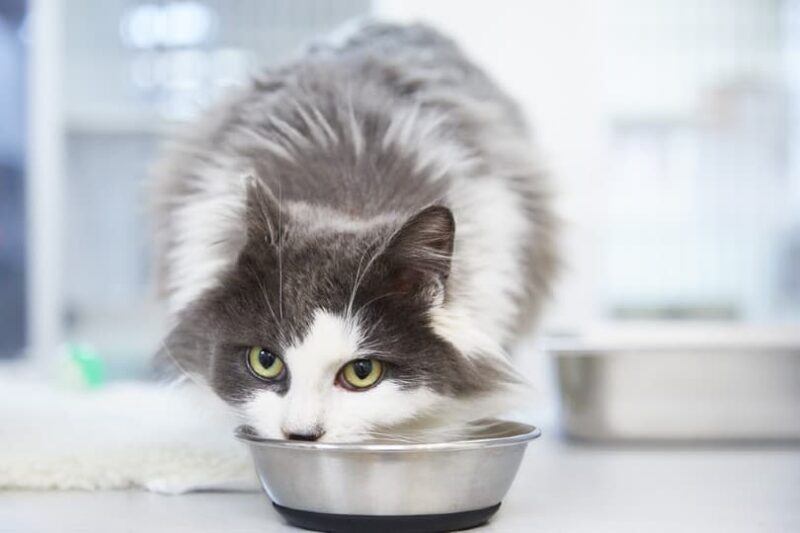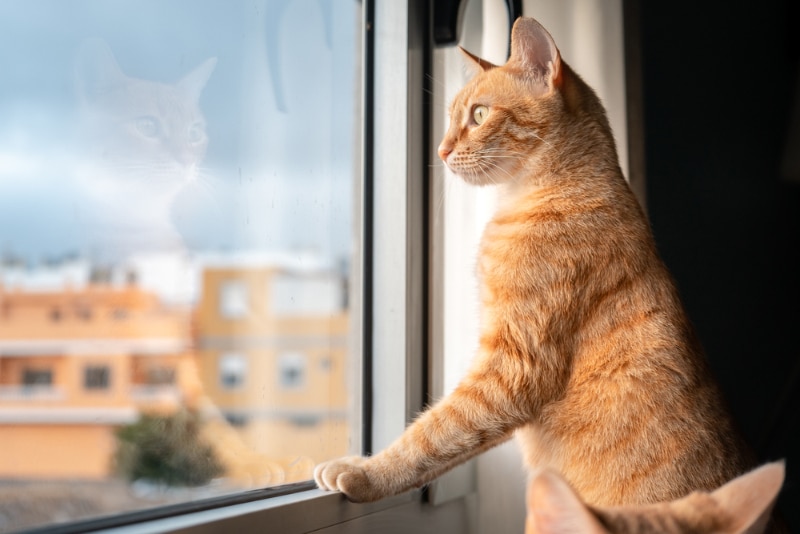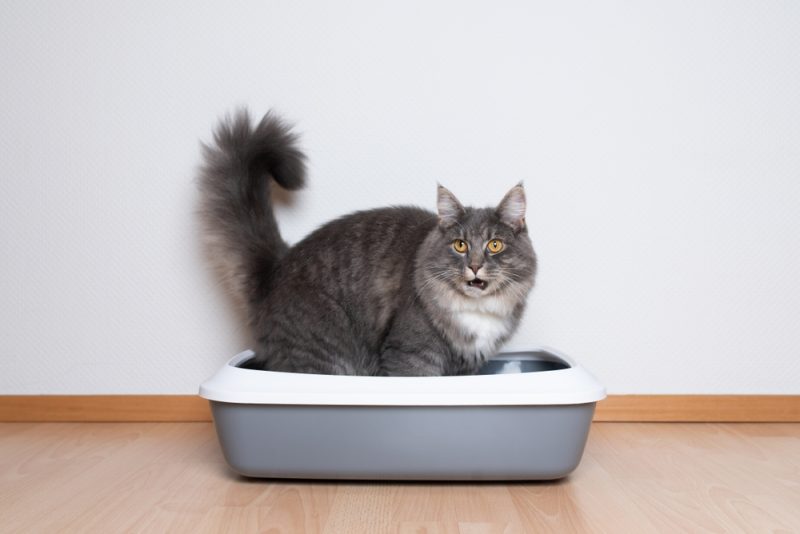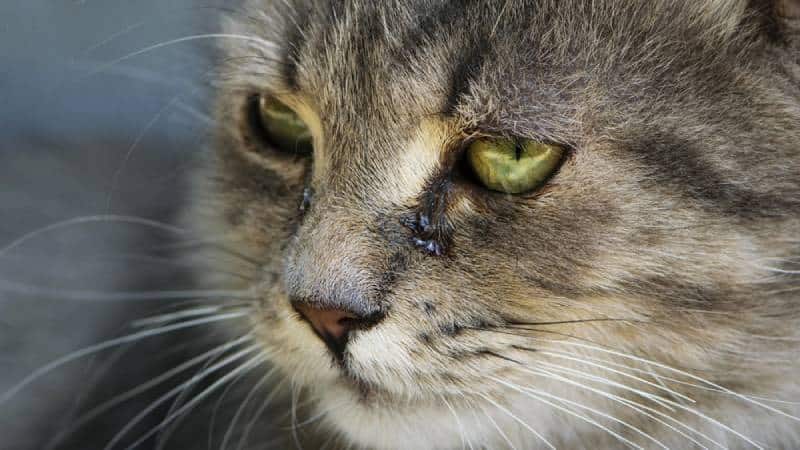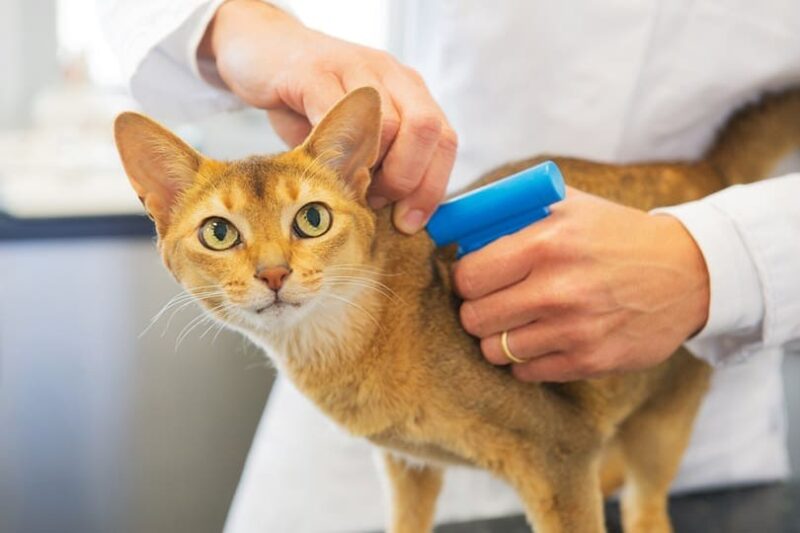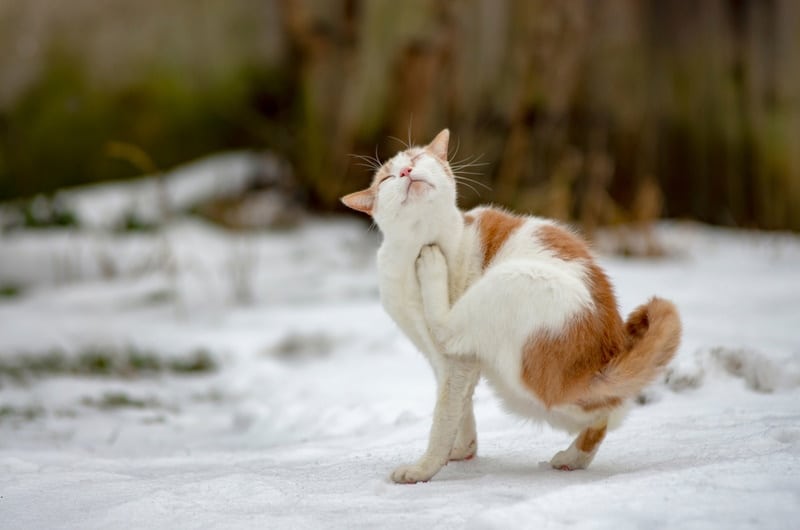It’s natural for someone to consider kissing their pets. After all, it’s one of the most common ways we show affection. However, we don’t recommend sharing your love this way, even if your kitty tolerates it. Their mouths aren’t as hygienic as some claim. The greatest risk of kissing your cat on the lips comes from zoonotic diseases you can get from them. Let’s learn a bit more about this down below.

Reasons Why You Should Not Kiss Your Cat on the Lips
1. Self-Grooming and Cats
Let’s begin with the elephant in the room. Cats groom themselves and each other—a lot. It comes partly from being a predator. Cats are fastidious about cleanliness. Why? Their scent can alert prey and reduce their chances of hunting success.
Wild cats also groom themselves to get rid of any food they’ve eaten that is still on their bodies. It’s worth noting that all wildlife will probably carry some internal and external parasites from continual exposure. That also applies to what felines are consuming. If you have an indoor-outdoor pet, they are at a greater risk of exposure than strictly indoor animal companions. So, what are the potential dangers?
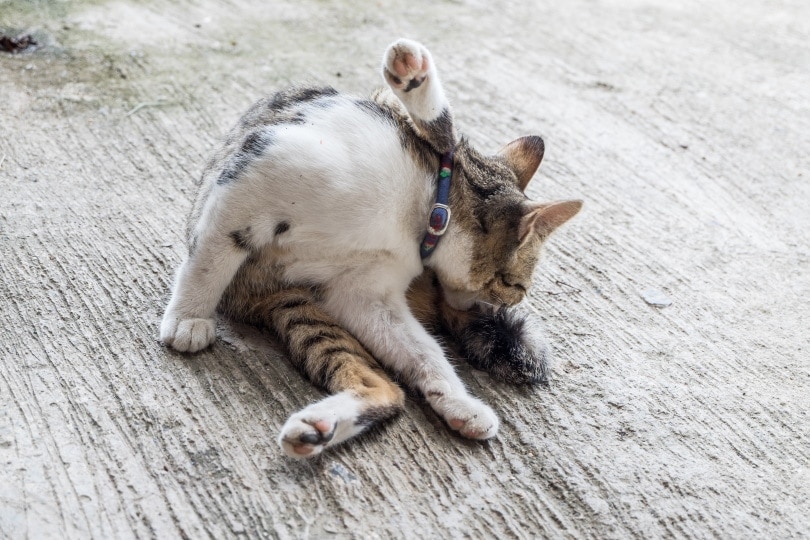
2. Parasite Transmission
The primary risk to you from kissing your cat on the lips comes from the parasites you could get from them. Scientists estimate that nearly half of cats have some gastrointestinal parasites, with roundworms being the most common. Humans can become infected with these conditions through contact. That’s one reason why it’s imperative that your cat gets regular vet exams to check for parasites, especially, but not only, if they have outdoor access.
However, that’s not the only issue. A cat that hunts birds or rodents can get toxoplasmosis, and they may shed it for up to 2 weeks. Pregnant women are at the greatest risk if they come in contact with the parasite when cleaning the litter box. The infection often goes unnoticed in healthy adults. Nevertheless, a woman that gets toxoplasmosis for the first time while being pregnant can pass it on to her baby, and if not treated, it increases the chances of miscarriage, stillbirth, and congenital disabilities.
Another parasite a cat may encounter outdoors is giardia from drinking contaminated water. It can cause gastrointestinal problems, loss of appetite, and lethargy in pets. It can cause similar symptoms in people. The condition is also spread from person-to-person contact. Children, the elderly, and people with compromised immune systems are most vulnerable.
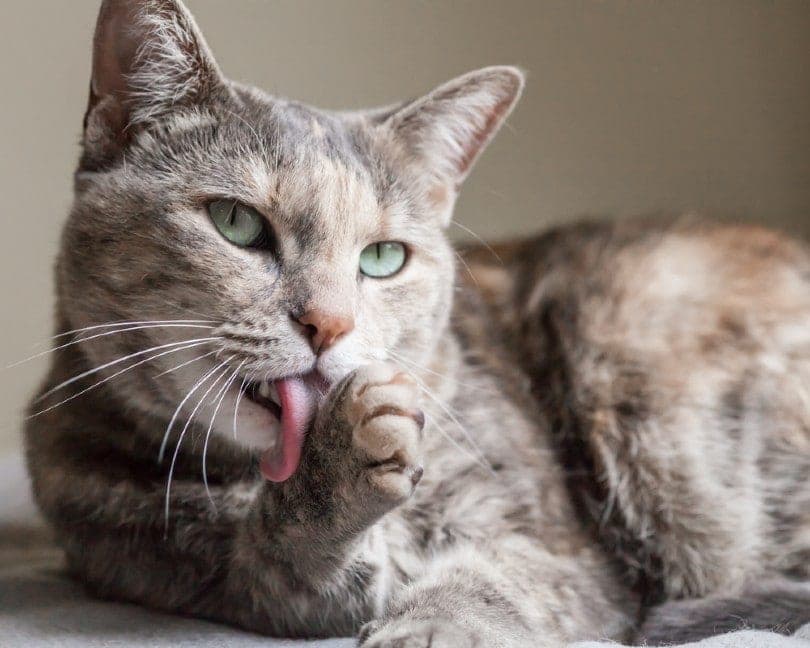
3. Other Infections
Another concern exists with a bacteria called Capnocytophaga, which lives in the mouths of cats and doesn’t make them sick. It is not a common infection, but you should be aware of it, especially if there are any family members with weakened immune systems. Cats fed raw meat-based diets are also at risk of carrying certain bacteria, such as Campylobacter, Salmonella, and Brucella.
Another risk is a bacterial infection called Pasteurella. One study found that 75% of infected cat bite wounds contained this bacteria.
We must also state the obvious. Cats groom themselves and create an avenue of exposure by cleaning their hind ends. Many parasites are passed through the animal’s feces. That’s why it’s imperative to wash your hands after cleaning the litter box. Any contact is a chance of becoming infected.
Allergy Symptoms
This outcome is probably off your radar but worth mentioning if you have a pet allergy. Some proteins that cats produce, called allergens, can trigger allergy symptoms in susceptible people. These allergens exist in your kitty’s saliva and sebaceous glands of the skin. Kissing your cat on the lips puts you directly in harm’s way. Sadly, there’s no such thing as a hypoallergenic pet. If you experience reactions, you shouldn’t allow your cat to lick you. You shouldn’t kiss them, either.
Preventing Health Issues
We’re sorry our news isn’t what you may want to hear. Nonetheless, understanding the hazards is imperative because they are real. Remember that knowledge is power. Knowing the possibilities empowers you to be alert for the signs of parasites or illness.
Washing your hands is your best defense against infectious diseases. You should also ensure everyone in the family, especially children, elderly, and immune-compromised individuals, follow this same precaution because of their greater vulnerability. You can show your kitty how much they mean to you in less risky ways. Praise and attention will make your love clear to your pet, as well as some yummy treats, of course.

Final Thoughts
We love our pets dearly, so it’s natural to want to hug and kiss them because of the joy they bring into our lives. However, it’s best not to show your affection in this way. A danger of exposure to gastrointestinal parasites and transmission of bacteria exists. The kicker is that your kitty may harbor one of the conditions without showing any signs. Therefore, we recommend playing it safe and cuddling with your cat on the couch instead.
Featured Image Credit: Julija Sulkovska, Shutterstock




